The Korean War - Season 2 / Year 2025

Season 2 / Year 2025
Year 1951

Episodes
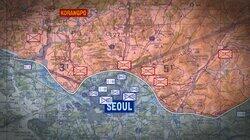
7 January 1951
The Chinese People's Volunteer Army crosses the Imjin River in force and attacks the South Korean capital. The best units available to Eighth Army commander Matt Ridgway defend it, but with more Chinese armies and reformed North Korean units pushing in the east, is there any hope of holding onto it?
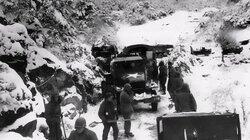
14 January 1951
UN troops around Wonju get a gentle reminder that they're not only fighting the Chinese. The North Koreans are back, and hammer the weak point in the UN lines all week. With UN forces still organising a defence, and lots of holes in their formation, will they be able to hold on? Or will failure here undo all of Eighth Army Commander Matt Ridgway's good work thus far?
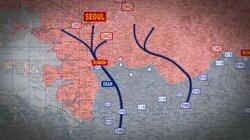
21 January 1951
Matt Ridgway sends forth the US 27th Infantry Regiment, known as the Wolfhounds, into the no-mans-land between the UN and Chinese lines to sniff out and hunt down their enemy. The success or failure of his first few operations in Korea could be crucial, as confidence in the UN mission from generals, politicians, and the US' allies continues to teeter on a knife edge. A strong showing here could finally put the uncertainty to rest.
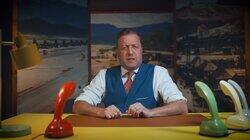
28 January 1951
Peng Dehuai's armies rest and recuperate on the banks of the Han River, nursing their supply issues, and the initiative has firmly swung in favor of the UN side. The North Koreans in the east are fleeing, and Matt Ridgway's latest offensive in the west gets underway without a hitch. Are we about to see yet another reversal of fortune and pursuit up the Korean Peninsula?
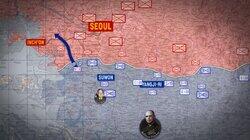
4 February 1951
The fate of the Korean Peninsula stands on a knife edge as Peng Dehuai's mighty armies gear up to make their move. The US 8th Army continues to push towards Seoul, now backed up by Edward Almond's 10th Corps to the east. Violent clashes towards the end of the week confirm what both sides already suspect: a great battle is coming, and in this deadly game of thrust and riposte, there can be but one victor.

11 February 1951
The anticipated Chinese counterattack begins to take shape. Chinese commander Peng Dehuai and US 8th Army Commander Matt Ridgway both know the significance of what comes next. These next days will decide the future of the Korean Peninsula. UN troops dig in, and Chinese troops prepare to advance. The time is now, and the stakes have never been higher.
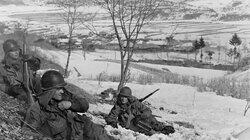
18 February 1951
Chinese Commander Peng Dehuai has launched his 4th Phase Offensive, pushing the UN forces back in the center of Korea, and should his forces take Chipyong-ni, they will compromise the entire UN position. Chipyong-ni must hold!

25 February 1951
Operation Killer begins this week, and its objective is what the name implies, to destroy as much of the enemy as possible rather than just trying to merely take territory. But once again, UN Commander Douglas MacArthur threatens to telegraph it before it starts. The offensive itself, though, is stymied its first few days by the weather. Meanwhile in China, Peng Dehuai meets with Mao Zedong to clear the air.
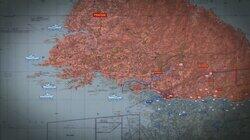
4 March 1951
This week is really a week of planning, as Matt Ridgway unveils the plans for Operation Ripper- to follow the somewhat disappointing Operation Killer, but there are South Korean spies involved, the blockade of Wonsan, and the continuing escalation of tensions between Douglas MacArthur and Harry Truman, with people in American High Command concerned that MacArthur is bent on starting World War 3.
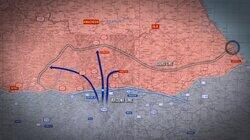
11 March 2025
Operation Ripper kicks off this week, and gains plenty of ground... but the enemy is almost nowhere to be found. Douglas MacArthur gives what becomes known as his 'die for tie' speech, which could have a serious negative effect on UN troop morale. But the Chinese are building up their forces for an eventual counterstrike, and the North Koreans even have a new Chief of Staff.
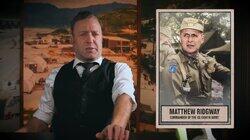
18 March 1951
Seoul falls to the South Koreans this week- the 4th time it's changed hands since last June. There is no big celebration this time, though, since much of the city has been completely destroyed. This is just part of Operation Ripper, which advances all over to little enemy resistance, also taking the important town of Hongcheon.
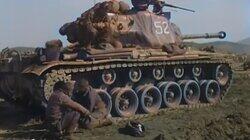
25 March 1951
Harry Truman is moving forward with his plans to somehow end the fight with the Chinese, but Douglas MacArthur takes a hatchet to those plans. Truman is furious, and the question remains, for how long will MacArthur's defiance be tolerated? In the field, Operations Ripper, Courageous, and Tomahawk are in action, but are all disappointing for the UN forces, as they fail in their mission to destroy the enemy's war making capacity. They don't actually do much of that at all.
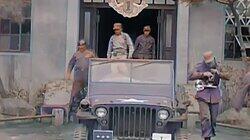
1 April 1951
The UN forces have again crossed the 38th Parallel in many places, but High Command is worried about Soviet intervention, which could ultimately force them to withdraw from Korea entirely. However, plans are still set for Operation Rugged to soon go into action- aiming into the Iron Triangle.

8 April 1951
Operation Rugged is in full swing, and it's taking a decent amount of territory, but Matt Ridgway is worried about the possibility of the enemy blowing the dam at the Hwacheon Reservoir and flooding his army, so he gets set to try and soon take it. Meanwhile there's an explosion in Congress in Washington DC, when the Minority Leader openly reads Douglas MacArthur's letter of his plans for the war that are diametrically opposed to those of President Harry Truman. Truman realizes that he's going to have to remove MacArthur from UN command.
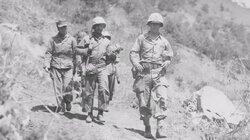
15 April 1951
It's finally happened, President Harry Truman has relieved Douglas MacArthur of Command. If you've followed us lately you'll know the why, but today you'll see then how, when, and where. But the fight in the field goes on- this week fighting for control of the Hwacheon Reservoir.
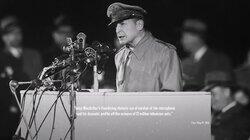
22 April 1951
The stage is set for the Chinese Communist Forces' next big offensive in Korea, but that is not where American eyes are fixed this week. Instead, focus swings to Washington D.C. where the recently-fired Douglas MacArthur arrives and proceeds to address crowds and Congress alike. It soon becomes clear that he will not go gentle into that good night.
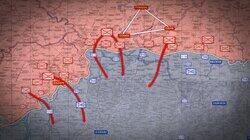
29 April 1951
This is a week of nothing but battle action as the Chinese Spring Offensive crashes down on the UN forces like a tidal wive- literally hitting them along all of the front lines across the whole Korean Peninsula.
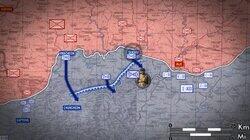
6 May 1951
The Senate Hearings digging into Douglas MacArthur's dismissal as UN forces commander begin this week, though they'll likely continue for some time. Meanwhile in the field, the Chinese Spring Offensive that raged all last week continues, although it cannot reach Seoul, and by the end of the week the enemy seems to be withdrawing on all fronts.
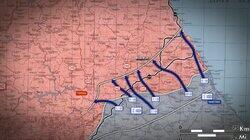
13 May 1951
The MacArthur Hearings continue in Washington, and George Marshall is adamant that what Mac says about the January 12th proposal is just plain not true. There's still a war going on in the field, although this week is really a week of deployments, as 8th Army moves north to reoccupy former lines, even as reports come in of the Chinese massing for a possible attack.
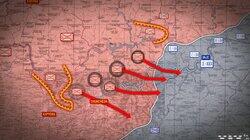
20 May 1951
The Chinese Spring Offensive reignites, and it does so with a vengeance, kicking straight into high gear, and also totally surprising the UN forces by hitting them heavily much further east than they had ever expected- in the high Taebacks. Units find themselves, cut off, sandwiched, or broken... although a redeployment means that already by the end of the week, a UN counterattack is in the cards.
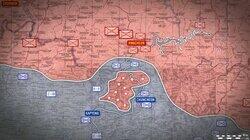
27 May 1951
The Chinese Spring Offensive continues this week, but comes to its end- it has cost the Communist forces tens of thousands of men, but even as it ends, the UN counteroffensive begins- and costs them tens of thousands more! And in Washington the MacArthur hearings continue, and it is obvious by now to all and sundry that General Douglas MacArthur had been very much out of line and President Truman was within his authority for firing him.
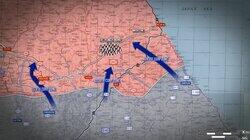
3 June 1951
The MacArthur Senate Hearings continue this week, with US Secretary of State Dean Acheson now in the hot seat. He takes a rather confusing barrage of questions, and yet manages to signal to the world at large, i.e. the Chinese, that the US is open to negotiations to end the war. The war still continues in the field, of course, with the UN forces' Operation Piledriver in action, driving into the 'Iron Triangle' and trying to trap as much of the enemy as possible.
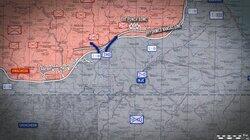
10 June 1951
The UN forces Operation Piledriver gets bogged down by the weather and the terrain. 8th Army Commander Jim Van Fleet says that though the enemy has been hurt, he still has another big offensive left in him by summer's end, but there are murmurs and hints that some of the forces fighting this war are ready to talk about an armistice. And in the Senate, Dean Acheson spends five solid days talking about the US position on China.

17 June 1951
The UN troops continue their advance to the Kansas Line, meeting no resistance at Pynoggang, but heavy resistance beyond it inside the Iron Triangle. 8th Army Commander Jim Van Fleet does not want to advance much beyond where they are now, though, since territory further north would be tougher to defend, should ceasefire talks begin. And Douglas MacArthur continues to tour the states, but to ever smaller crowds.
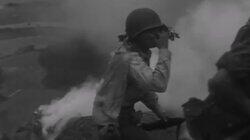
24 June 1951
Soviet Ambassador Jacob Malik speaks to the world on UN radio, saying that the Soviet position on Korea is that ceasefire talks should begin among the belligerents. The Americans are thinking of how they can bring in more non-American UN units, even as South Korean President Syngman Rhee denounces the British and Commonwealth forces and says they should go home.
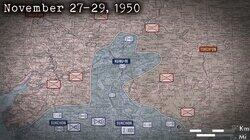
1 July 1951
Over a year has passed since North Korean forces crossed the 38th Parallel and invaded South Korea, and while the war has seen the advantage switch hands time and again, one thing it has not seen is any sort of cease fire or peace negotiations. However, that might change soon, as this week both the Chinese and the Americans indicate their willingness to sit down and talk. South Korean President Syngman Rhee, however, is against any cease fire talks that do not set out to meet a big variety of his demands, demands which which the other warring parties do not see as being in their own best interests.
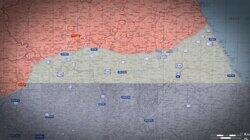
8 July 1951
It's huge news- the Chinese and North Koreans have agreed to hold peace talks with the American led UN forces, to begin next week! That's all well and good, but everyone on every side now has to figure out exactly what they want from the talks and what they're prepared to give up to get it. There are also plenty of people, like UN Commander Matt Ridgway, who don't want to have peace talks at all just now. Still, a UN liaison party flies in to Kaesong at the end of the week to lay the groundwork. Exciting times.
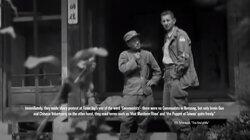
15 July 1951
This week might be a big turning point in the war, for this week, ceasefire negotiations begin in Kaesong. Both sides have sent delegations, and both sides have different goals they wish to achieve. The big question is, though: what is each side willing to concede in order to create a lasting peace?

22 July 1951
The Kaesong negotiations continue, hopefully to bring about a cease fire, but is this even possible, considering the wishes and demands of each side? They can't even agree on what a 'foreign soldier' is, let alone whether such troops should leave Korea. And both sides still prepare for war, even as they try to bring about some sort of peace.
Recently Updated Shows

Project Runway
Project Runway designers are given an opportunity to launch their careers in fashion.

Mystery at Blind Frog Ranch
There are some places on earth where the land just seems different, and Blind Frog Ranch in eastern Utah is one of those places. Locals say the land is cursed. That it's trying to hold on to something. From Aztec treasure to caverns of gold and silver to lost Mormon mines, legends surround Duane Ollinger's 160-acre ranch in Utah's Uintah Basin. But Duane isn't concerned with the lore. After discovering a system of seven underground caves that run through his property, he is singularly focused on finding what's hidden in them - no matter what the cost.

Dateline: Secrets Uncovered
Real-life mysteries. Investigative reporting. Justice. Dateline is the long-running, award winning newsmagazine bringing viewers stories ranging from compelling mysteries to powerful documentaries and in-depth investigations. Hosted by NBC News' Craig Melvin, each episode of Dateline: Secrets Uncovered incorporates the classic elements of drama and great storytelling: good guys, bad guys, conflict with the highest stakes, suspense and resolution. Hear the chilling tales directly from those most affected and involved, including investigators tasked with cracking the case and the families confronting tragedy. In every story we tell, we help the real people who lived the events share their journeys with you.

The Proof Is Out There
The Proof Is Out There takes an in-depth look at some of the most incredible and thought provoking videos of unexplained phenomena and mysterious must-see moments of all time. Each half-hour episode explores and analyzes the full story of each irregularity in question from bizarre footage of people seemingly immune to lightning, to a fifty-foot snake, apocalyptic sounds in a man's backyard, enigmatic creatures, and UFOS that split and dive underwater. Through expert examination and the use of the latest technologies, The Proof Is Out There aims to get to the bottom of what's real? What's fake? And everything in between.

Big Brother
Big Brother follows a group of people living together in a house outfitted with dozens of high-definition cameras and microphones recording their every move, 24 hours a day. Each week, the Houseguests will vote someone out of the house. At the end, the last remaining Houseguest will receive the grand prize of $500,000.